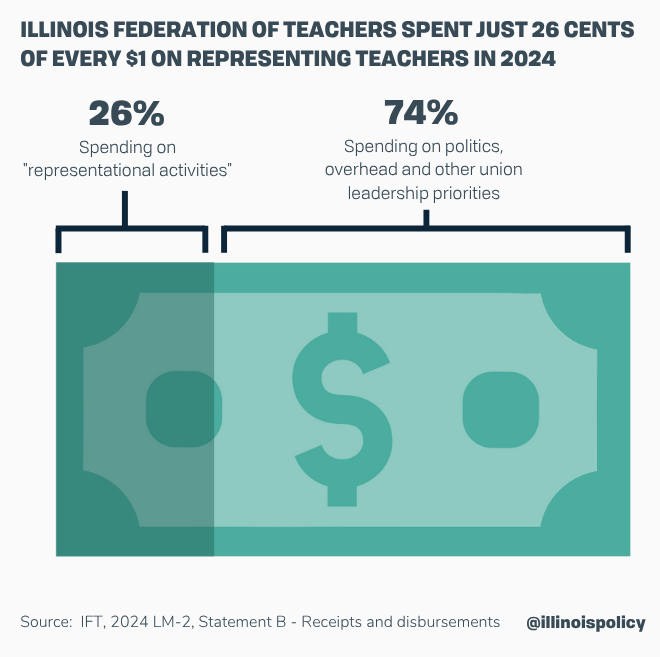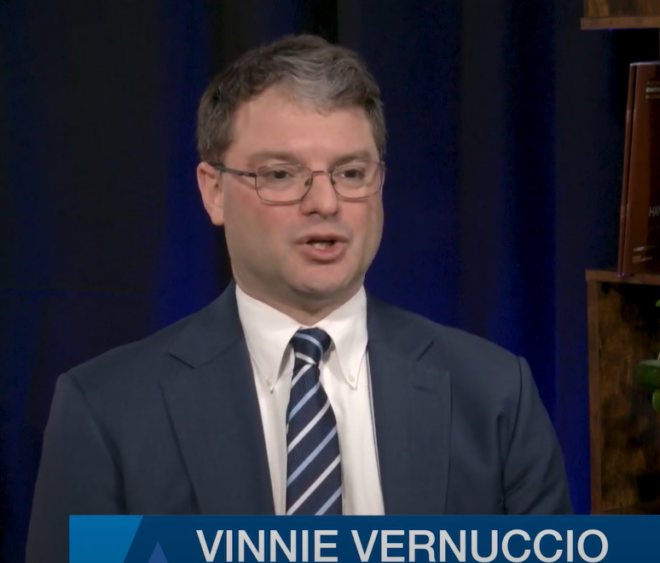Posts tagged opt-out

Lower courts ignore Supreme Court precedent to force union payments
August 2, 2025 // The National Right to Work Legal Defense Foundation and the Mackinac Center for Public Policy are urging the U.S. Supreme Court to answer that question. In an amicus brief filed July 24, the two organizations ask the Court to reaffirm and enforce the constitutional standard it set in the 2018 Janus v. AFSCME decision: that no money may be taken from a public employee’s paycheck for a union without the employee’s clear and affirmative consent. The brief supports two public workers who are respectively suing the American Federation of State, County, and Municipal Employees as well as the International Union of Operating Engineers. Marcus Todd and Terry Klee

Illinois teachers can opt out of unions in August. Here’s why they should.
July 30, 2025 // Just 15% to 26% of Illinois teachers union spending was on representing teachers in 2024. But public education employees can opt out of union membership and keep their hard-earned money.
Kaiser Nurse Hits CA Nurses Union With Federal Charges for Forcing Nurses to Fund Union Politics
July 23, 2025 // Because California is not a Right to Work state, UNAC chiefs can enforce union monopoly bargaining contracts that require Warthemann and her fellow nurses to pay union dues to keep their jobs, but Beck limits this amount to only the portion of dues that UNAC officials use for bargaining functions. In contrast, in Right to Work states like neighboring Arizona and Nevada, union membership and all union financial support are strictly voluntary. “The radical political agenda promoted by the UNAC union is something I do not—and should not—be compelled to support,” Warthemann commented. “While I’m required to pay union dues to remain employed at the hospital, that obligation should not include funding extreme political activities. It is both unethical and, in my view, illegal.”
Commentary: How to end the ‘free rider’ problem with union representation
July 21, 2025 // It’s a fair compromise that empowers workers by giving them more choices. They can still join in collective bargaining with their fellow workers if they want or go it on their own if they think they can do better. It may prove to be beneficial to unions as well. It will prod them to become more customer-oriented towards their members, rather than taking them for granted. A union won’t have the drain of providing for non-members. Unions that can prove they’re doing well by their members will have a solid recruitment message.

The Roadmap To Modernizing Federal Labor Laws: Matt Kittle, F. Vincent Vernuccio
July 20, 2025 // That's one of the main things that we want to see at I4AW. Is workers having a choice in a voice, having. The ability to say who they want to be represented by, how they want their money spent, and how they want to work. And I know we talked about it briefly with the ERA, but the ability for an independent contractor to work for themselves, not be considered an employee, small business owner, to own a franchise, all those things are core to what the flexibility and the entrepreneurship of the modern worker, and those are the concepts that are embraced, you know, not just on the union end of the Employee Rights Act, but on the innovation and entrepreneurial spirit and pro worker end of the ERA.

Op-ed: It’s Time to End Government Unions’ Post-Janus Coercion
July 8, 2025 // These include, but aren’t limited to: acknowledging the workers’ right to opt out of union membership and dues, but refusing to honor their request to do so except during an arbitrary, union-determined two-week “opt-out window” of which the worker is unaware; inviting union operatives to make high-pressure, often-deceptive recruiting pitches to all newly hired public employees while denying the same privilege to organizations anxious to offer the workers an alternative point of view; refusing to open mail suspected to contain member opt-out requests; passing laws and filing lawsuits intended to prevent disclosure of government employees’ contact information — which is clearly a matter of public record — solely to keep organizations such as the Freedom Foundation from informing workers about their constitutional right to decline union participation; arguing that Janus provides no protections for union members, not even a constitutionally protected right to resign from the union; and, when all else fails, simply forging an employee’s name on a dues-authorization form.
Pittsburgh-Area Coca-Cola Driver Slams Teamsters With Federal Charges for Threatening Firing Over Refusal to Fund Union Politics
July 7, 2025 // Hammaker’s charges go on to challenge the fact that Teamsters union officials’ policies force workers to “affirmatively opt out of paying for non-chargeable expenditures” (if such requests are accepted at all), as opposed to letting workers voluntarily opt in to such support. Moreover, “the Union has violated the Act by failing to inform [Hammaker] and similarly situated employees of the true amount of dues they are required to pay” under Beck to stay employed, the charges conclude.
Governments should protect workers, end cozy relationship with political allies
July 1, 2025 // Unions already collect hundreds of dollars — or more — each year from each member. They should be using that money to support members during strikes, not expecting employers to pay workers not to work. The misguided policy will likely raise costs for public and private employers, harm the majority of workers in the state and weaken the state’s unemployment insurance fund. The government should be neutral between employers and labor, not serve as muscle to force employers to finance a de facto strike fund on behalf of political allies. If lawmakers and public employers truly cared about fairness for workers and the disadvantaged who lose jobs, they’d stop helping unions build political war chests and start giving workers full transparency and choice.
Georgia Rep Introduces Bill To ‘Empower Workers’ Against Unions
June 27, 2025 // Representative Rick Allen (R-GA) introduced the Employee Rights Act (ERA) of 2025 on Thursday, seeking to reform labor unions and support workers’ rights. The legislation, Allen claims, will provide privacy for unionized workers, allow workers to opt out of union representation, and harmonize existing labor laws. Allen collaborated with F. Vincent Vernuccio – the president and co-founder of labor advocacy group Institute for the American Worker (I4AW) – to write an op-ed in the Washington Examiner explaining his bill.

SEIU Illinois spends just 3% of members’ money representing workers
May 13, 2025 // The Illinois state affiliate of the Service Employees International Union collected over $3 million in dues from members in 2024. It spent just $57,000 of that representing them. Politics and overhead were the union’s priorities.
